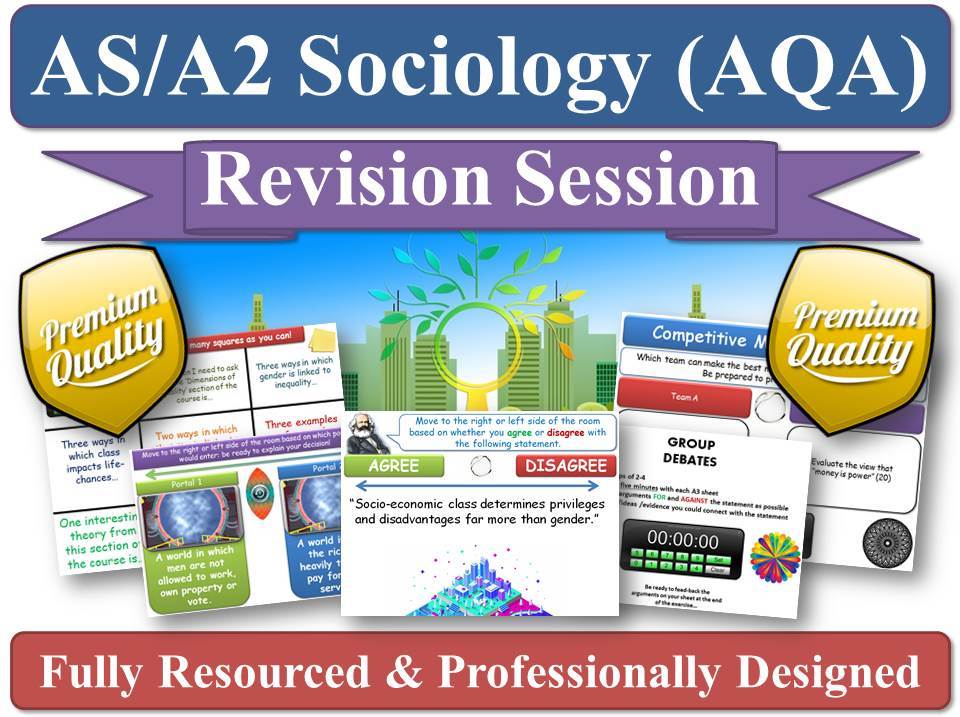Religion, Philosophy, Sociology & Ethics Resource Base
Resources for Religious Studies, Sociology, Philosophy, Ethics and Humanities. We specialise in making whole units and courses for ultimate convenience and time-saving. We always aim to make the best resource for a given topic: our goal is perfection and our resources have helped educate 1 million+ students!

![The Future of Marriage and Divorce - Sociology of Families - L13/20 [ AQA GCSE Sociology - 8192] KS4](https://d1e4pidl3fu268.cloudfront.net/cc09b931-c4e5-49be-afff-8549a3287360/Cover.jpg)
![Criticisms of the Family - Sociology of Family - L10/20 [ AQA GCSE Sociology - 8192] Dysfunction KS4](https://d1e4pidl3fu268.cloudfront.net/f88c1d94-fdd7-487e-96a3-bf0676c875c8/Cover.jpg)
![Media Representations & Moral Panics - Crime & Deviance L19/20 [ WJEC EDUQAS GCSE Sociology ] KS4](https://d1e4pidl3fu268.cloudfront.net/33c01b6d-8414-4b34-8236-b2770fad93f0/cover.jpg)
![Cohen, Criminal Subcultures & Gangs - Crime & Deviance L12/20 [ WJEC EDUQAS GCSE Sociology ] New KS4](https://d1e4pidl3fu268.cloudfront.net/ec700954-0ea3-4597-ab41-fc2a7198a33f/Cover.jpg)
![Social Stratification (20 Lessons) WJEC / EDUQAS [ GCSE Sociology ] POWER AUTHORITY](https://d1e4pidl3fu268.cloudfront.net/fac811c6-f119-475d-8b13-873fa269302e/wjeccovergcsesociology3.crop_1595x1200_0,0.preview.jpg)

![Buddhism P4C Pack [x4 Resource Value Bundle] (P4C, Philosophy, RE, RS, P4C, Buddha, Buddhist, Buddhism, Metaphysics, Tutor, Form, PSHE]](https://d1e4pidl3fu268.cloudfront.net/6caf8b3c-13e7-40d2-86bf-4e388ae1aef6/BuddhismBuddhistBuddhaRERSReligiousEducationReligionStudiesUKGCSEKS3KS4Cover.crop_959x720_0,0.preview.jpg)

![Ethical Consumerism & Making Ethical Consumer Choices [P4C - Philosophy & Ethics Lesson]](https://d1e4pidl3fu268.cloudfront.net/58da395e-ef49-4b44-8727-0e1250635571/PhilosophyLessonPhilosophyTeachingResourcesP4CEthicsEthicalConsumerismShoppingConsumptionPurchasing.crop_604x453_71,0.preview.jpg)

![KS3 RE [6 COMPLETE UNITS!]](https://d1e4pidl3fu268.cloudfront.net/cc94b08a-9a06-428e-898a-3e2a50c88ca7/KS3Units.crop_957x720_0,0.preview.jpg)
![Community & Citizenship PSHE Session [P4C PSHE, PSE]](https://d1e4pidl3fu268.cloudfront.net/b57ae272-e42e-43c5-8651-e293807ed283/NewCover2018PSHESingles.crop_960x717_0,0.preview.jpg)
![Functionalist Views - Crime & Deviance L14/20 [ AQA GCSE Sociology - 8192] Functionalism KS4 NEW](https://d1e4pidl3fu268.cloudfront.net/0a81c644-836a-4367-a05b-f8ed270f882b/Cover.crop_700x523_0%2C0.preview.jpg)
![Social Control (Formal vs Informal) - Crime & Deviance L4/20 [ AQA GCSE Sociology - 8192] NEW KS4](https://d1e4pidl3fu268.cloudfront.net/6f257727-7420-44df-941e-5616adddfd9c/cover.crop_700x523_0%2C0.preview.jpg)

![EDUCATION (20 Lessons) WJEC / EDUQAS [ GCSE Sociology ]](https://d1e4pidl3fu268.cloudfront.net/e179900a-0be9-498f-80c6-ac8ef0b8b3c2/wjeccovergcsesociology2.crop_1595x1200_0,0.preview.jpg)
![KS3 Buddhism - Buddhist Festivals [Video Learning Session]](https://d1e4pidl3fu268.cloudfront.net/d9dd227d-1a7a-484f-a2d1-a2c94ec278ae/VideoLesson.crop_960x718_0,0.preview.jpg)


![Prison, Punishment, Sentencing - Crime & Deviance L13/20 [ AQA GCSE Sociology - 8192] New Spec KS4](https://d1e4pidl3fu268.cloudfront.net/c538a6fa-0aa2-4523-b5d3-7208956b873e/Cover.crop_700x523_0%2C0.preview.jpg)